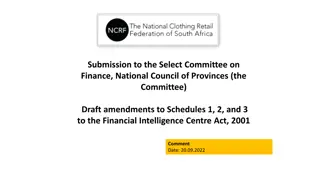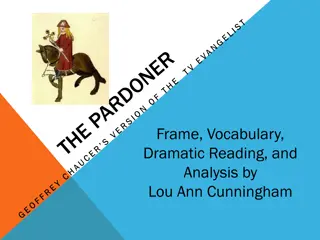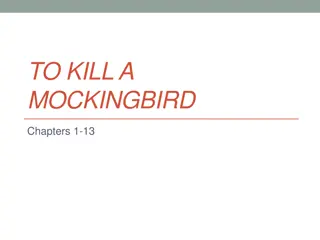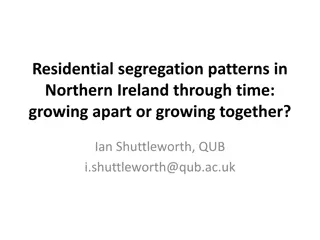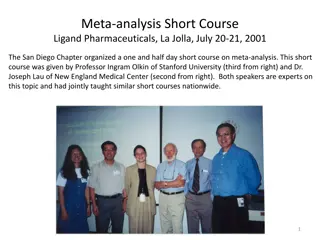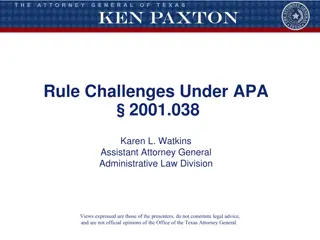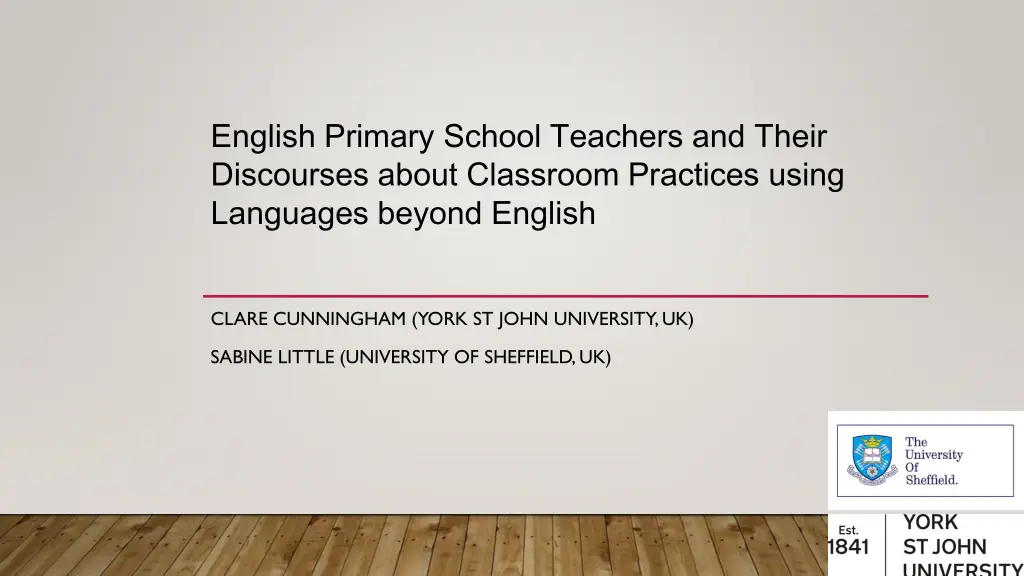
Primary School Teachers' Discourses on Using Languages Beyond English
Explore the study by Clare Cunningham and Sabine Little on English primary school teachers' perspectives and practices involving languages beyond English in the classroom. The research delves into the UK's stance on multilingualism, the impact of the multilingual turn, and the current place of languages beyond English in educational settings. Despite evolving understandings, practical implementation remains limited, emphasizing the crucial role of classroom teachers in shaping language practices.
Download Presentation

Please find below an Image/Link to download the presentation.
The content on the website is provided AS IS for your information and personal use only. It may not be sold, licensed, or shared on other websites without obtaining consent from the author. If you encounter any issues during the download, it is possible that the publisher has removed the file from their server.
You are allowed to download the files provided on this website for personal or commercial use, subject to the condition that they are used lawfully. All files are the property of their respective owners.
The content on the website is provided AS IS for your information and personal use only. It may not be sold, licensed, or shared on other websites without obtaining consent from the author.
E N D
Presentation Transcript
English Primary School Teachers and Their Discourses about Classroom Practices using Languages beyond English CLARE CUNNINGHAM (YORK ST JOHN UNIVERSITY, UK) SABINE LITTLE (UNIVERSITY OF SHEFFIELD, UK)
OVERVIEW Context of the study and national background The study: data collection, protocols and focus Data and analysis Discussion and implications
LANGUAGES IN THE UK The UK, and perhaps particularly England, is often seen as a nation subscribing wholeheartedly to a monolingual mindset with pockets of support for some indigenous languages (e.g. Wales) The study of MFL (modern foreign languages) has been and continues to be seen as being in crisis (Lanvers and Coleman, 2017) Hierarchy of languages very strong ability in European languages perceived more positively. Capacity in immigrant minority languages far less celebrated Mainstream classroom teachers only very rarely represent the linguistic diversity of their schools (Tinsley and Board, 2016)
THE (NON)-IMPACT OF THE MULTILINGUAL TURN Guidance for monolingual teachers on best practice with children s home languages in the classroom have been available for almost twenty years (Bourne, 2001), There has never been an official policy, and guidance for teachers on working with multilingualism has now been absent from the governmental publications for over ten years (last govt. publication 2009) Despite the strength of the multilingual turn (Conteh and Meier, date) and the growth of understanding of the concept of translanguaging in applied linguistics, the current research literature and anecdotal evidence suggests that translanguaging practices are still very rarely adopted in English schools.
THE PLACE FOR LANGUAGES BEYOND ENGLISH The place of Languages beyond English (Cunningham, 2019b) in UK (English) schools at all remains extremely uncertain and patchy (Flynn, various; Cunningham, 2019a; Bailey and Marsden, date) in reality In the total absence of top-down policy on supporting LBEs, more grass-roots and de-centralised groups are emerging (Bell Foundation, NALDIC still nationally, but also local hubs and regional interest groups) But it s in the classroom that really matters so what class teachers think and say is critical
OUR STUDY Today, we are reporting on a tiny part of a much broader study International comparative study 8-9 countries, sharing interview protocol to explore Attitudes, Beliefs and Knowledge about Multilingualism (AILA ReN on Social and Affective Factors in Language Maintenance and Development In England, 40 interviews with primary and pre-primary teachers across a range of settings, SES, and types of teacher Interviews lasted 30 mins 1 hour 20 mins Analysis: combination of Appraisal analysis and Thematic analysis (the latter here)
FOCUS: DISCOURSES AROUND CLASSROOM PRACTICES WITH LBE Discourses arose across the interviews but were more apparent during the section in which we adapted the statements from Pulinx, van Avermaet and Agirdag (2016) on how much linguistic diversity is tolerated Key findings: significant contradictions exist between and within participants, tolerance and positivity towards LBEs expressed throughout but there are many BUTs (pragmatic, practical, funding, resources etc.)
FOCUS: DISCOURSES AROUND CLASSROOM PRACTICES WITH LBE There also exists (at least) two forms of what we propose to call: Inert Benevolence The inertia can be internally caused clashing ideologies leading to inaction, or externally caused by policies and unwritten rules preventing individual teachers from taking the action they might like to
Res: it is more important that students who speak a language other than English at home (.) obtain a high level of proficiency in English (.) rather than in their home language T: it would depend on (.) what you re choosing cri- so is it what is it important for (R: hmmm) that would be my (R: hmmm) question for that so I (.) you know if they re planning on staying in this country and getting a job in this country and going to university in this country it would be important but I don t think I would ever say that one is more important than the other (.) I think (.) I don t know it almost feels a bit (R: hmmm) personal and insulting to say to someone who speaks two languages well this language is more important than the other (.) um (.) no I dont think I (.) would agree R: hmmm T: I think they re both important and I think they can both help each other (R: hmmm) um ((pause, 4)) but then with my teacher head on (R: hmmm) sorry I m just like kind of going round in circles here because (.) for me (.) the criteria that our children are assessed on is in English (.) and (.) for things like the SATs you know they need that English though I suppose for in school (R: hmmm) yes their English is more important R: hmmm T: but (.) overall no (R: hmmm) cause I don t think (.) you could say to someone one language is more important than (.) that one (R: hmmm) they might need their language to communicate with their family and in that case how can you say that this language is more important (R: hmmm) so no I don t think I would agree R: hmmm T: was that clear
Res: it is more important that students who speak a language other than English at home (.) obtain a high level of proficiency in English (.) rather than in their home language T: more a practicality thing I think I think its wonderful that they have that language and (.) you know if we had all the time in the world then id love for them to get that but (.) I think it would be more important for them (.) to have that grasp of English so that they can (.) progress in England
Res: students who speak a language or languages other than English at home should receive home language instruction i.e. learn their home language at school T: I probably wouldn t agree with that (.) just because I don t see how it would work in our school (.) with all the different children Res: yeah T: with the (.) different languages (.) it d be a impossible task for us I think (1) I think it s important that they speak that language at home still with their parents they don t lose it Res: mm: mm: T: cos that would be a (.) awful I think if they (.) lost that language (.) erm: (1) but in school (.) use it, like you said use it to kind of help lessons an: um celebrate their culture but a- uh (.) I honestly don t think we could do that
DISCUSSION AND IMPLICATIONS These small excerpts are part of a broader set of contradictory discourses as teachers in England battle with: Language ideology issues against a politically fraught background (years of under-funding languages, standard language ideology, monolingual habitus and Brexit) Language of assessment Curriculum and testing pressures ( we ve no time for EAL as one participant says) Tolerance and admiration (sometimes jealousy, in fact) for multilingualism but limited understanding about how to handle it due to very limited training on EAL, multilingualism or SLA
REFERENCES Bailey, Elizabeth G, and Emma Marsden. 2017. Teachers Views on Recognising and Using Home Languages in Predominantly Monolingual Primary Schools. Language and Education 31 (4): 283 206. Bourne, Jill. 2001. Doing What Comes Naturally : How the Discourses and Routines of Teachers Practice Constrain Opportunities for Bilingual Support in UK Primary Schools. Language and Education 15 (4): 250 68 Conteh, J. and Meier, G.(Eds). The Multilingual Turn in Languages Education: Opportunities and Challenges. Bristol, UK: Multilingual Matters Cunningham, C. (2019a). The Inappropriateness of Language : discourses of power and control over languages beyond English in primary schools. Language and Education, 33(4): pp. 285-301. Cunningham, C. (2019b). Terminological tussles: taking issue with 'EAL' and 'languages other than English. Power and Education, 11 (1): pp. 121-128. Flynn, Naomi. 2013. Linguistic Capital and the Linguistic Field for Teachers Unaccustomed to Linguistic Difference. British Journal of Sociology of Education 34 (2): 225 42. Lanvers, U. and Coleman, J. A. (2017) The UK language learning crisis in the public media: A critical analysis. U Lanvers, JA Coleman. The Language Learning Journal 45 (1), 3-25 Pulinx, R., Van Avermaet, P., & Agirdag, O. 2016. Silencing linguistic diversity: The extent, the determinants and consequences of the monolingual beliefs of Flemish teachers. International Journal of Bilingual Education and Bilingualism. Board, Kathryn and Teresa Tinsley. 2015. Language Trends 2014/15, the state of language learning in primary and secondary schools in England. (CfBT).






